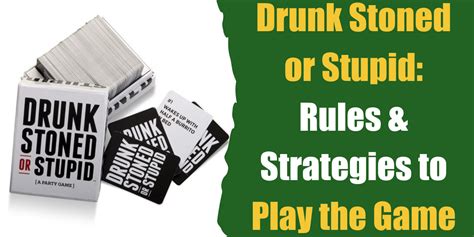Secrets to Conquering Drunk, Stoned, or Stupid: Mastering Difficult Conversations
Dealing with intoxicated or otherwise impaired individuals can be incredibly challenging. Whether it's a friend, family member, or colleague, navigating these situations requires tact, patience, and a clear strategy. This article explores effective techniques for managing conversations with people who are drunk, stoned, or exhibiting generally poor judgment, focusing on de-escalation, clear communication, and setting healthy boundaries.
Understanding the Impairment
Before we delve into strategies, it's crucial to acknowledge the different types of impairment we're addressing. Alcohol intoxication affects judgment, coordination, and speech; marijuana use can lead to disinhibition and altered perception; and "stupidity," in this context, refers to poor decision-making or a lack of understanding, regardless of substance use. Each requires a slightly different approach.
How to Talk to Someone Who's Drunk
H2: What should I do if someone is drunk and aggressive?
Dealing with aggressive intoxicated individuals requires prioritizing your safety. Avoid direct confrontation. If possible, remove yourself from the situation. If you can't leave, try to calm the person by speaking softly and calmly. Avoid arguing or engaging with their anger. If necessary, seek help from security personnel or law enforcement.
H2: How do I de-escalate a situation with a drunk person?
De-escalation is key. Speak calmly and clearly, using simple sentences. Avoid using accusatory language. Acknowledge their feelings without validating their behavior. For example, you could say, "I understand you're upset, but shouting isn't going to help solve this." Offer water or a non-alcoholic beverage. Give them space if they need it.
H2: How can I get a drunk person to go home safely?
If someone is too intoxicated to drive, ensure they get home safely. Arrange for a sober friend or family member to pick them up. If that’s not possible, consider calling a taxi or ride-sharing service. You may also want to contact someone close to them to inform them of the situation.
How to Talk to Someone Who's High (Stoned)
H2: How do I communicate effectively with someone who's high on marijuana?
Communicating with someone under the influence of marijuana requires patience and understanding. They may be slower to respond, have difficulty focusing, or have altered perceptions. Speak clearly and concisely, and allow extra time for them to respond. Avoid complex or abstract conversations.
H2: What if someone is high and making poor decisions?
If a stoned individual is making poor decisions, try to gently guide them towards safer choices. Offer alternative suggestions, highlighting the potential consequences of their actions. Remember, direct confrontation is rarely effective. Instead, focus on collaborative problem-solving.
H2: Can I help someone who's high to calm down?
Similar to dealing with a drunk person, offer water and a calm environment. Focus on redirecting their attention to something calming. Music, a quiet space, or a simple conversation about unrelated topics can help de-escalate the situation.
How to Talk to Someone Who's Simply "Stupid" (Poor Judgment)
H2: How do I communicate with someone who consistently makes poor decisions?
Consistent poor judgment requires a long-term strategy, rather than a one-time conversation. Choose a calm and private setting to address the issues. Focus on the behavior, not the person. Use "I" statements to express your concerns without placing blame. For example, "I'm concerned about your recent decisions because..."
H2: How can I help someone who lacks understanding?
If the poor judgment stems from a lack of understanding, providing clear and concise information is crucial. Explain the consequences of their actions, offering examples and solutions. Patience and repetition are key. Consider involving other trusted individuals or professionals if needed.
H2: What if the person refuses to acknowledge their mistakes?
When someone refuses to acknowledge their mistakes, it's essential to set boundaries. This might mean limiting your contact, refusing to participate in risky behaviors, or seeking professional help (e.g., therapy or counseling). Prioritize your own well-being.
Setting Boundaries and Prioritizing Your Well-being
Regardless of the type of impairment, setting boundaries is crucial. You are not responsible for managing someone else's intoxication or poor judgment. Protect your own safety and emotional well-being. Don’t hesitate to walk away from a situation that feels unsafe or uncomfortable.
This article provides general guidance. Specific situations may require different approaches. Remember, safety and well-being are paramount. If you’re dealing with a serious situation involving violence or threat of harm, contact emergency services immediately.

